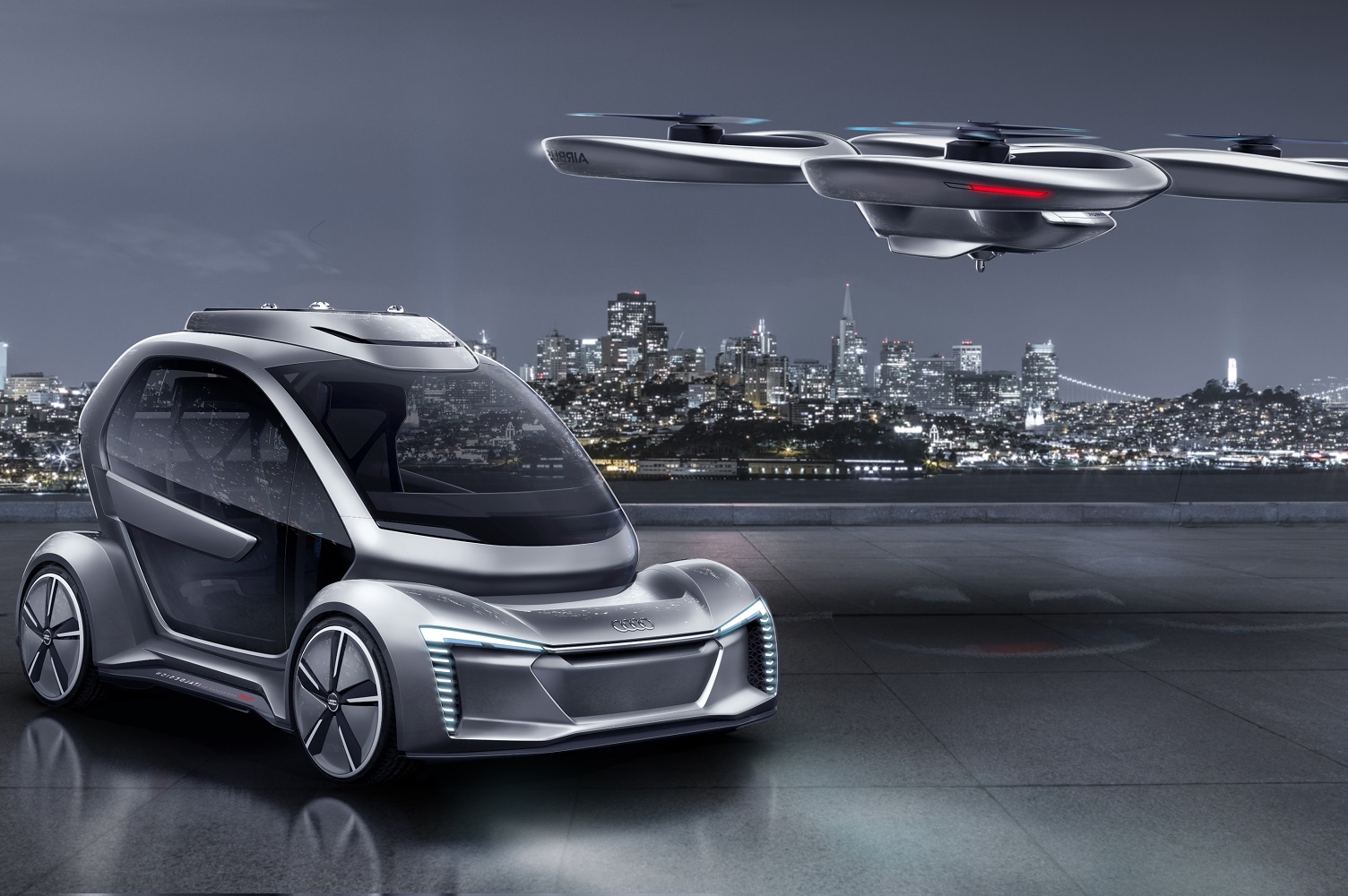
Audi has suspended work on the Pop.Up, a flying taxi the automaker has been developing with Airbus, and is putting its partnership with the aviation giant up for review, reports Automotive News Europe. Audi subsequently confirmed that the Pop.Up project was dead. It’s a crack in the facade of optimism companies large and small have shown for the nascent flying taxi business.
“We will not continue work on the Pop.Up project,” Audi said in a statement to Digital Trends. The automaker said the vehicle was always intended as a research project and “not as our first series product.” Audi officials are “convinced” that flying taxis are here to stay, but the automaker isn’t ready to make firm plans for production.
“We are currently working on a realignment of our urban air mobility activities and have not yet made a decision on possible future products,” Audi said.
The Pop.Up was unveiled at the 2017 Geneva Motor Show, and an updated version called Pop.Up Next appeared at the same show in 2018. Designed with input from Italdesign, the vehicle consists of a flying passenger capsule that sits on a conventional car chassis. The idea is for users to drive to a designated heliport normally, then attached the car half to the aircraft half and take to the skies.
A one-quarter scale version of the Pop.Up was successfully test flown at Drone Week in Amsterdam late in 2018. The German government also gave Audi and Airbus approval to test the flying taxi in the skies over Audi’s home city of Ingolstadt. But those activities have now been put on hold. Audi not believes getting a flying taxi into production may be more difficult than originally anticipated.
Audi noted that a modular vehicle like the Pop.Up is highly complex. The automaker said it will be a “very long time” before a flying taxi that can switch from driving to flying will be production feasible. Airbus wouldn’t comment to Automotive News Europe on the state of the Audi partnership, but said the Pop.Up wasn’t intended to replace its own CityAirbus and Vahana flying taxi programs.
“We congratulate our sister brand Porsche on its cooperation with Boeing,” Audi added, referring to a recently announced joint effort to work on flying taxis. Both Porsche and Audi are part of the Volkswagen Group, and Audi indicated any future flying taxi partnerships will be with other brands within that conglomerate.
Despite the newness of the technology, and safety concerns surrounding current urban helicopter services, several automakers, aviation firms, and tech companies are still trying to launch flying taxis. Hyundai recently announced plans to develop the technology, while Aston Martin unveiled a flying taxi concept in 2018. Daimler, parent company of Mercedes-Benz, owns a stake in German flying taxi startup Volocopter. Uber is taking to the skies as well, first with helicopters, but eventually, the company hopes, with a fleet of flying taxis.
Updated on October 15, 2019: Added Audi statement.


